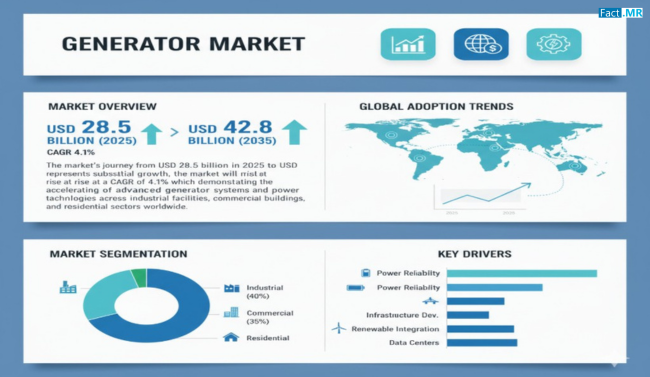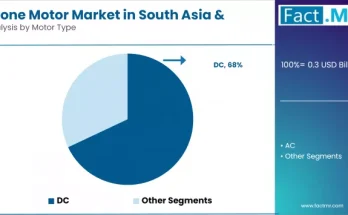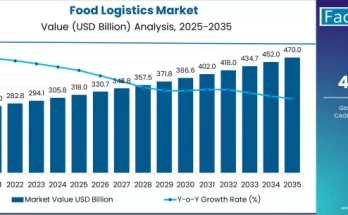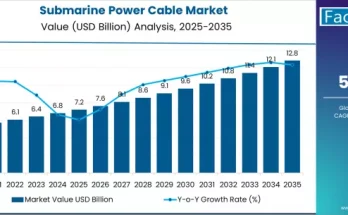As global energy demands continue to rise, the generator market plays an increasingly vital role in ensuring uninterrupted power supply across industries and households. With the growing need for energy resilience and the rapid expansion of industrialization, generators are becoming essential components of modern infrastructure. Their use extends beyond backup power—generators now symbolize reliability, efficiency, and sustainability in an evolving energy ecosystem.
Market Overview
The generator market encompasses a wide range of power systems designed to provide electricity during outages, remote operations, or emergencies. These systems are crucial in maintaining business continuity, supporting healthcare facilities, industrial production lines, and data centers that demand round-the-clock power availability.
The industry has evolved from conventional fuel-powered systems to technologically advanced and hybrid solutions. Innovations in engine design, emission control, and automation have enhanced efficiency while minimizing environmental impact. Moreover, the market is witnessing a steady transition toward cleaner energy alternatives such as bi-fuel and gas-based generators, reflecting a global push toward sustainability.
In addition, the integration of smart technologies and digital monitoring has redefined the operational landscape. Remote diagnostics, predictive maintenance, and IoT-enabled control systems are enabling users to optimize fuel consumption, reduce downtime, and extend equipment life cycles—ushering in a new era of intelligent power management.
Regional Insights
North America remains a key region for generator adoption, driven by the need for reliable backup power in residential, commercial, and industrial sectors. Frequent weather-related disruptions and grid reliability concerns have strengthened the demand for portable and stationary generator systems across the region.
Europe is experiencing a growing shift toward environmentally friendly generators, supported by stringent emission norms and renewable energy integration. The region’s focus on reducing carbon footprints has accelerated the adoption of natural gas and hybrid generators in both commercial and public infrastructure applications.
Asia Pacific is emerging as a major growth hub due to rapid industrialization, urban expansion, and increased infrastructure investments. From construction projects to manufacturing plants, the need for consistent and efficient power supply is fueling demand across developing economies. Meanwhile, Latin America and the Middle East & Africa are witnessing rising installations in mining, oil & gas, and telecommunications sectors, driven by expanding energy access initiatives and infrastructure modernization efforts.
Key Trends & Forecast
The generator market is undergoing significant transformation, propelled by technological innovation, environmental regulations, and shifting consumer preferences. Key trends shaping the market include:
- Growing Adoption of Smart and Connected Generators
IoT integration and smart monitoring systems are revolutionizing generator management. Real-time performance tracking, fault diagnostics, and remote operation are enhancing efficiency and reducing maintenance costs. - Sustainability and Low-Emission Technologies
With global emphasis on sustainability, manufacturers are introducing eco-friendly generators that comply with strict emission standards. Natural gas, biogas, and hybrid models are increasingly preferred for their reduced carbon output and cost-effective operation. - Rising Demand in Data Centers and IT Infrastructure
The surge in digitalization has amplified the need for uninterrupted power supply to support critical data operations. Generators designed for data centers are equipped with high efficiency, redundancy, and fuel optimization capabilities. - Hybrid Power Systems and Renewable Integration
The combination of renewable energy with traditional generator systems is becoming a major industry trend. Hybrid setups—linking solar or wind energy with diesel or gas generators—are being deployed to ensure continuous power while minimizing fuel dependency. - Technological Advancements in Engine Design
Modern engines are built to deliver higher efficiency, lower vibration, and improved noise control. Advanced cooling systems and electronic fuel injection mechanisms are further enhancing performance and reliability. - Expansion in the Construction and Infrastructure Sector
Massive construction projects, particularly in developing economies, are boosting the demand for portable and stationary generators. On-site power solutions are essential to ensure seamless operations, especially in regions with limited grid connectivity. - Focus on Digital Maintenance Solutions
Predictive analytics and cloud-based monitoring platforms are being utilized for early fault detection and proactive maintenance scheduling, thereby improving asset longevity and operational uptime.
Applications & End-Use Outlook
Generators are indispensable across diverse industries and applications:
- Industrial Sector:
Manufacturing, mining, and oil & gas industries rely heavily on generators to maintain production continuity. Power reliability ensures minimal downtime, particularly in operations that cannot afford interruptions. - Commercial Sector:
Shopping complexes, hospitals, educational institutions, and offices use generators to safeguard against power failures. The rise of high-performance and silent generators has made them ideal for urban commercial spaces. - Residential Sector:
In areas prone to outages or with unstable grid connections, homeowners are increasingly investing in compact, fuel-efficient generators to ensure consistent electricity for essential appliances. - Infrastructure and Construction:
Construction sites often operate in remote locations without direct access to the grid. Generators provide the necessary energy for lighting, equipment, and tools, thereby facilitating smooth project execution. - Telecommunication and Data Centers:
Continuous uptime is crucial for telecom towers and data centers. Generators ensure seamless operations, especially during grid disruptions or peak load fluctuations.
Competitive Landscape
The generator market is characterized by intense competition, with global and regional manufacturers focusing on technological upgrades, product innovation, and service optimization. Leading companies are expanding their portfolios to include hybrid and gas-based models while investing in automation and connectivity features.
Strategic partnerships, mergers, and acquisitions are becoming common as companies seek to strengthen their presence in emerging markets. After-sales services—such as preventive maintenance, performance analytics, and remote monitoring—are also becoming key differentiators in maintaining long-term client relationships.
Furthermore, manufacturers are emphasizing modular designs, enabling quick installation and scalability for diverse applications. This flexibility appeals to industries requiring customized power solutions tailored to their operational needs.
Future Outlook
The future of the generator market lies in harmonizing performance with sustainability. As industries and households increasingly depend on continuous power, generators will continue to serve as critical enablers of reliability and productivity. However, the focus will shift toward cleaner fuels, digital optimization, and hybrid power integration.
Advancements in battery storage technology and renewable energy alignment will redefine generator applications, creating more efficient and environmentally responsible solutions. Governments and manufacturers alike are expected to collaborate on establishing eco-conscious standards that ensure both operational excellence and environmental stewardship.
Conclusion
The generator market is poised at the intersection of innovation, reliability, and sustainability. With increasing emphasis on energy security and green technologies, generators are evolving from backup solutions into intelligent, efficient, and eco-friendly power systems. For businesses, infrastructure developers, and households alike, adopting advanced generator technologies represents a step toward a more resilient and sustainable energy future.
Browse Full Report – https://www.factmr.com/report/423/generator-market



